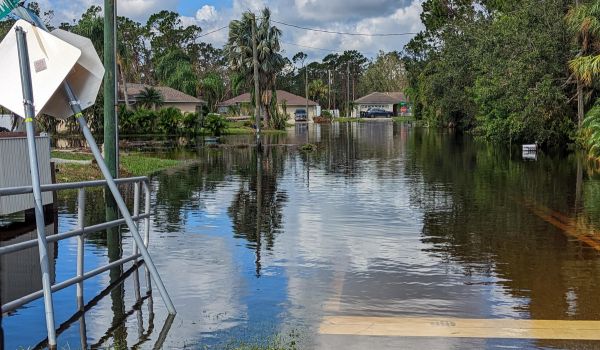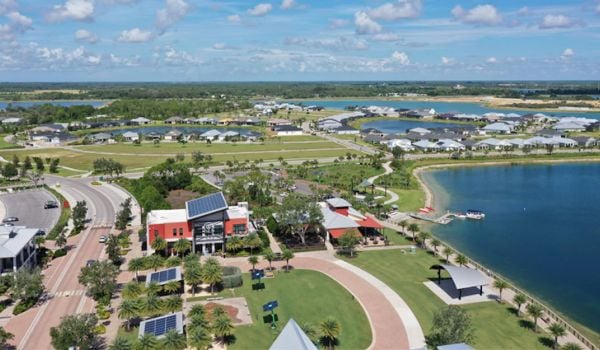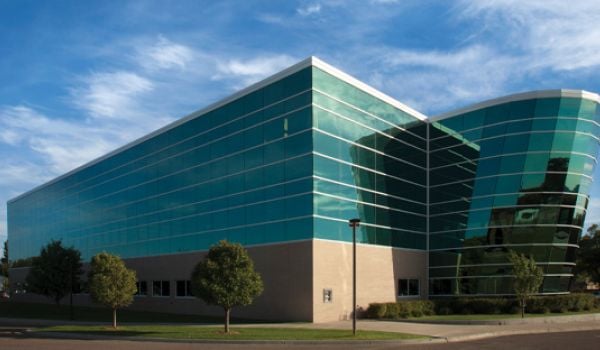Conversations about urban resilience tend to center on the coming impacts of climate change, and especially sea level rise. There’s good reason for it: Coastal cities are facing a flooded future, even if we take significant steps right now to curb emissions. But for the U.S. city of Oakland — which is also at risk from sea level rise, granted — climate change is far from the only threat to its long-term sustainability. The city has to address growing income inequality and achievement gaps in schools, shrinking housing affordability, chronic violence and other problems in addition to climate threats.
That intersecting list of social, economic and environmental needs is central to the city’s Resilient Oakland Playbook. Published in early October, the document outlines the issues threatening the city’s long-term sustainability, goals for addressing those threats and actions the city can take to accomplish those goals. The Playbook is part of Oakland’s work with 100 Resilient Cities (100RC), which provides funding for the municipal position of chief resiliency officer, as well as technical assistance, services and other tools.
Urban resilience, as defined by 100RC, is, “the capacity of individuals, communities, institutions, businesses, and systems within a city to survive, adapt, and grow no matter what kinds of chronic stresses and acute shocks they experience.”
Kiran Jain, Oakland’s chief resiliency officer, says addressing issues such as income inequality and systemic racism is at the heart of Oakland’s 100RC work.
“Our greatest barriers to resiliency are addressing our day-to-day social stresses, including equitable access to quality jobs, education, affordable housing, community safety and better infrastructure,” she says.
The new Playbook makes clear that Oakland’s problems are not felt evenly across the city. In fact, the rapid influx of wealth from the Bay Area’s tech industry and corresponding real estate boom have exacerbated problems for the city. Oakland has the seventh-highest level of income inequality in the U.S. Nearly 20 percent of the city’s residents live below the poverty line. In 2015, the unemployment rate among African-American residents was 20.2 percent, and 11.3 percent among Hispanic or Latino residents.
To address this, Oakland is setting the lofty goal of enabling “all residents to be economically secure, build wealth, and achieve their full potential, regardless of race or means.” In addition, “Oakland seeks to build a model of responsible economic growth and business attraction, in concert with a commitment to building economic security, especially for those who have historically had limited access to opportunity.”
The Playbook lists action items too. To address income inequality, it says, Oakland must “support asset building for low-income parents and children through Oakland Promise College Savings Initiatives; “create pathways to career success for young men and women of color”; and, “design a suite of inclusive economic development services to help entrepreneurs of color gain equal footing in Oakland’s economy.”
Beyond income inequality, the Playbook also highlights housing affordability, violent crime, a lack of trust in city government and police, aging infrastructure and climate issues such as worsening wildfires, drought and sea level rise as key issues along with a suite of actions for addressing them.
Of course, none of the problems outlined by the Playbook are news to Oakland. Jain says the value of 100RC is in its ability to connect city departments working on separate, but intersecting problems.
“The Resilient Oakland Playbook knits together our various city strategies and planning efforts around building a more connected and resilient government,” she says. “This will help the city take bold action including moon shots to drive integrated thinking and co-benefit design around community building and vibrant and sustainable infrastructure development.”
In addition, Jain says 100RC increases the city’s capacity to do community outreach. For example, when dealing with the climate issues, that helps the city, “empower residents to shape their own future around climate adaption. One way we are thinking about this is through community-driven collection at the neighborhood level to inform where the threat of sea level rise may impact vulnerable communities the most.”
Perhaps in a nod to the fact that city government archives are riddled with well-intentioned, but never implemented planning documents, the Playbook notes that the guidelines are merely a first step for the 100RC work in Oakland: “This playbook is a call to action. Resilient Oakland sets forth the work we need to do to begin modernizing our City by integrating processes, policies and programs that achieve greater impact.”

Josh Cohen is Crosscut’s city reporter covering Seattle government, politics and the issues that shape life in the city.
Follow Josh .(JavaScript must be enabled to view this email address)

_920_690_80.JPG)














